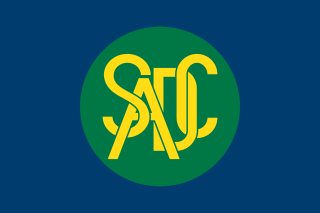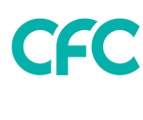
A customs union is generally defined as a type of trade bloc which is composed of a free trade area with a common external tariff.
An intergovernmental organization (IGO) is an organization composed primarily of sovereign states, or of other organizations through formal treaties for handling/serving common interests and governed by international laws. IGOs are established by a treaty that acts as a charter creating the group. Treaties are formed when lawful representatives (governments) of several states go through a ratification process, providing the IGO with an international legal personality. Intergovernmental organizations are an important aspect of public international law.
In international relations, intergovernmentalism treats states as the primary actors in the integration process. Intergovernmentalist approaches claim to be able to explain both periods of radical change in the European Union because of converging governmental preferences and periods of inertia because of diverging national interests. Intergovernmentalism is distinguishable from realism and neorealism because it recognized the significance of institutionalisation in international politics and the impact of domestic politics upon governmental preferences.

The Economic Community of West African States is a regional political and economic union of fifteen countries located in West Africa. Collectively, these countries comprise an area of 5,114,162 km2 (1,974,589 sq mi), and in 2015 had an estimated population of over 349 million.

The European Atomic Energy Community is an international organisation established by the Euratom Treaty on 25 March 1957 with the original purpose of creating a specialist market for nuclear power in Europe, by developing nuclear energy and distributing it to its member states while selling the surplus to non-member states. However, over the years its scope has been considerably increased to cover a large variety of areas associated with nuclear power and ionising radiation as diverse as safeguarding of nuclear materials, radiation protection and construction of the International Fusion Reactor ITER.

The Southern African Development Community (SADC) is an inter-governmental organization headquartered in Gaborone, Botswana.
European integration is the process of industrial, economic, political, legal, social and cultural integration of states wholly or partially in Europe or nearby. European integration has primarily come about through the European Union and its policies.

The Southern African Customs Union (SACU) is a customs union among five countries of Southern Africa: Botswana, Eswatini, Lesotho, Namibia and South Africa. Its headquarters are in the Namibian capital, Windhoek. It was established in 1910.

The Intergovernmental Authority on Development (IGAD) is an eight-country trade bloc in Africa. It includes governments from the Horn of Africa, Nile Valley and the African Great Lakes. It is headquartered in Djibouti City.

A continental union is a regional organization which facilitates pan-continental integration. Continental unions vary from collaborative intergovernmental organizations, to supranational politico-economic unions. Continental unions are a relatively new type of political entity in the history of human government. Throughout most of human history, political organization has been at the local level and in more recent centuries, the sub-regional ("regional")/sub-continental level ; however, starting with the advent of better transportation, weapons and communication there was for the first time the ability for a union of member states to organize at the continental level. After the devastation of the First and Second World Wars in the middle of the twentieth century, Europe began to slowly integrate with the founding of the "European Community", which became a political union covering much of the European continent.

The African Economic Community (AEC) is an organization of African Union states establishing grounds for mutual economic development among the majority of African states. The stated goals of the organization include the creation of free trade areas, customs unions, a single market, a central bank, and a common currency thus establishing an economic and monetary union.
The Regional Economic Communities (RECs) in Africa group together individual countries in subregions for the purposes of achieving greater economic integration. They are described as the "building blocks" of the African Union and are also central to the strategy for implementing the New Partnership for Africa's Development (NEPAD).
The OPEC Fund for International Development is the intergovernmental development finance institution established in 1976 by the Member States of the Organization of the Petroleum Exporting Countries (OPEC). The OPEC Fund was conceived at the Conference of the Sovereigns and Heads of State of OPEC Member Countries, which was held in Algiers, Algeria, in March 1975. A Solemn Declaration of the Conference "reaffirmed the natural solidarity which unites OPEC countries with other developing countries in their struggle to overcome underdevelopment", and called for measures to strengthen cooperation between these countries.

An economic union is a type of trade bloc which is composed of a common market with a customs union. The participant countries have both common policies on product regulation, freedom of movement of goods, services and the factors of production and a common external trade policy. When an economic union involves unifying currency it becomes an economic and monetary union.

The Common Market for Eastern and Southern Africa (COMESA) is a regional economic community in Africa with twenty-one member states stretching from Tunisia to Eswatini. COMESA was formed in December 1994, replacing a Preferential Trade Area which had existed since 1981. Nine of the member states formed a free trade area in 2000, with Rwanda and Burundi joining the FTA in 2004, the Comoros and Libya in 2006, Seychelles in 2009 and Tunisia and Somalia in 2018.

The Treaties of the European Union are a set of international treaties between the European Union (EU) member states which sets out the EU's constitutional basis. They establish the various EU institutions together with their remit, procedures and objectives. The EU can only act within the competences granted to it through these treaties and amendment to the treaties requires the agreement and ratification of every single signatory.

The African Continental Free Trade Area (AfCFTA) is a free trade area founded in 2018, with trade commencing as of 1 January 2021. It was created by the African Continental Free Trade Agreement among 54 of the 55 African Union nations. The free-trade area is the largest in the world in terms of the number of participating countries since the formation of the World Trade Organization. Accra, Ghana serves as the Secretariat of AfCFTA and was commissioned and handed over to the AU by the President of Ghana Nana Akufo-Addo on August 17, 2020 in Accra.











